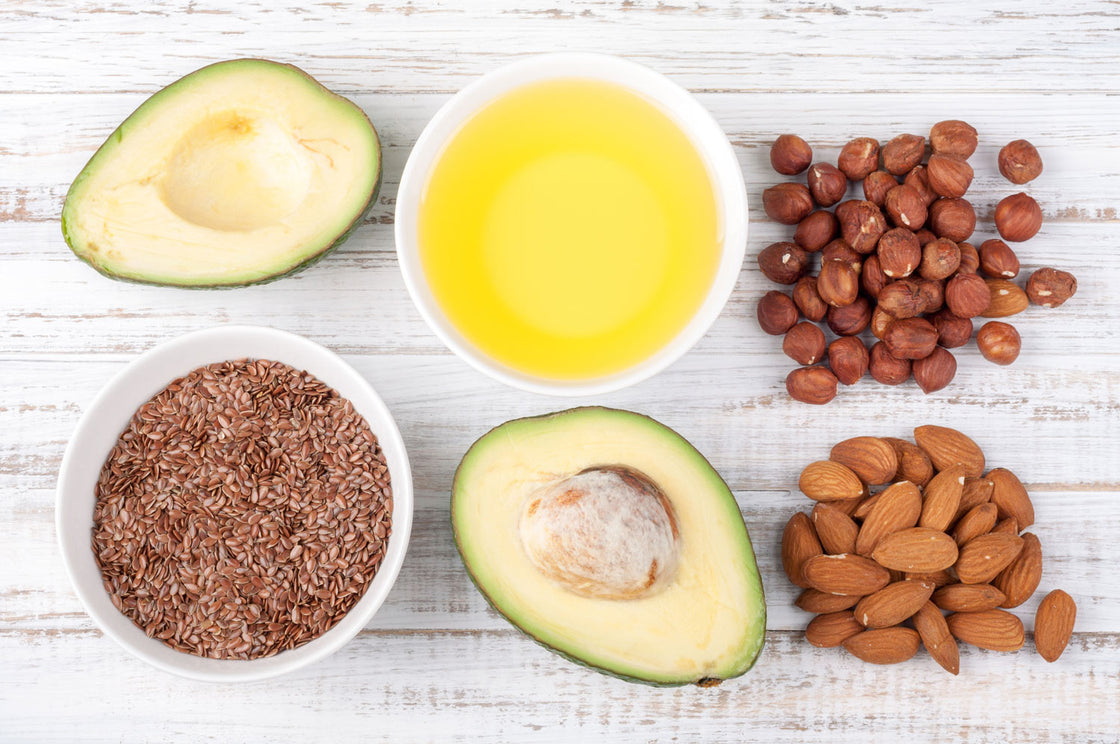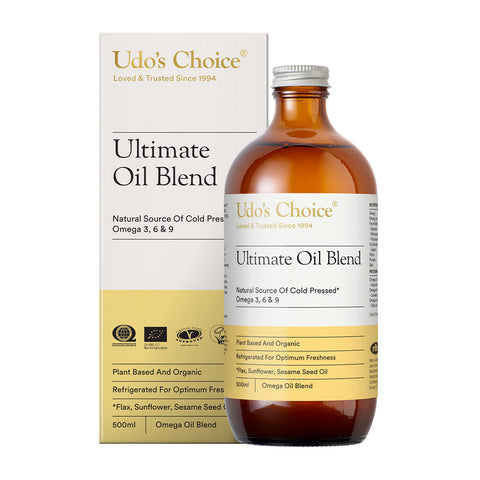There has been a lot written about the need to supplement our diets with fish oils. We have been swept along on wave after wave of articles on the benefits of fish oil Omega 3. Oil (fats) is part of our normal daily diet, however, whilst we have focused on oil supplements we have lost sight of the importance of getting our “foundation” oil intake right.
The Mayo Clinic states, “The 2015-2020 Dietary Guidelines recommend the following targets for healthy adults:
- Total fat: 20% to 35% of daily calories
- Saturated fat: 10% or less of daily calories
To figure out what that means for you, start with the number of calories you normally eat or want to eat a day. Multiply that number by the recommended percentages to get a daily range of fat calories.
Here's an example based on a 2,000-calorie-a-day diet:
- Multiply 2,000 by 0.20 (20%) to get 400 calories and by 0.35 (35%) to get 700 calories.
- Multiply 2,000 by 0.10 (10%) to get 200 calories.
- How many fat grams is that? There are 9 calories in a gram of fat, so divide the number of calories by 9.
- Divide 400 calories by 9 to get 44 grams. Then divide 700 calories by 9 to get 78 grams.
- Divide 200 calories by 9 to get 22 grams.
So if you're following a 2,000-calorie-a-day diet, your target range for total fat is 44 to 78 grams a day. Of that, saturated fat should make up no more than 22 grams.
The www.nutrition.org.uk website states, “The total fat for women is 70g per day and for men 95g per day, the latter is based on a 2500 calorie diet.
A typical fish oil supplement at recommended doses makes up only 1 to 5 grams of fat daily. Our total daily intake of oil, on the other hand, ideally should be between 70 and 100 grams or even higher depending on the individual. If we use 100 grams as our total oil intake per day as an example.
- A maximum of 5 grams of oil per day will come from krill /fish/algae oil. That’s the Supplement.
- The other 95 grams of per day will come from our foods and cooking oils. That’s the Foundation.
ALL of us need to get our foundation right
SOME of us will do better by adding supplements to foundation
NONE of us can do it on supplements alone
Not all “foundation” oils or fats as we can call them, from foods and cooking oils are healthy and as these form a larger proportion of oils in our daily diet than supplement oils we need to pay more attention to these as a subject for optimum health.
“Foundation” oils can be made up of one or a combination of the following fats:
- Damaged Fats (some margarine's, some cooking oils and some ready meals).
- Non-essential saturated fat (butter, lard, pork, coconut)
- Non-essential monounsaturated fat (olive, canola, macadamia, avocado, beans).
- Essential Omega 6 polyunsaturated fat (corn, safflower, grape seed, sunflower, sesame, most nuts).
- Essential Omega 3 polyunsaturated fat (flax and chia, and smaller amounts in hemp, walnuts, canola and soybeans).
Why do we need certain “foundation” oils/fats?
The fats that form the “foundation” part of our total oil intake affect the way our body operates at the cellular level. For optimum cellular performance it is important to obtain the right amount of healthy fats and in the right proportion. The key healthy fats are The Omega 3 Alpha-Linolenic acid (ALA) and Omega 6 Linoleic acid (LA).
Omega 3 ALA and Omega 6 LA are called Essential Fatty Acids as, unlike the other fats, the body cannot produce them itself and yet they are essential to the proper working of the cells that make up our body. (The DHA and EPA Fatty Acids in Fish Oils, although called “Omega 3” are not essential, though may be beneficial as a supplement). That is why when people have the right amount of Omega 3 ALA and Omega 6 LA and in the right proportion they identify changes in their body such as:
- Improved skin, hair and nails,
- More energy, stamina and recovery
- Boosted immune system and
- Sharper focus and concentration.
Damaged fats:
Many of our foundation oils are found in products that have been damaged by processing and contain unnatural and damaged molecules (eg Margarines and partially hydrogenated oils, fried oils and cooking oils). Cooking oils for instance can be damaged by a variety of processing techniques including heating at temperatures high enough to damage the beneficial molecules that would have otherwise been of use to our bodies. Even fish oil supplements can be damaged during similar processing especially as they are about 25 times more sensitive to damage by these processes than are cooking oils.
It is important to keep the amount of damaged fats in our diet to a minimum as they show a strong correlation with compromised immune functions and inflammatory conditions such as arthritis, Alzheimer’s, diabetes, osteoporosis, atherosclerosis, auto-immune conditions, allergic conditions and inflammatory skin conditions such as psoriasis and eczema.
So having these oils as part of our “foundation” oils should be avoided if health is our goal.
Taking an oil supplement without first paying attention to getting our “foundation” right is like eating no food and then swallowing a few vitamins, minerals and amino acid pills. It doesn’t make sense, is really expensive and does not work for health.
Taking a krill/fish/algae oil supplement may be appropriate but not as an alternative to ensuring that our diet is providing us with the healthy, undamaged “foundation” oils that our body needs to function at its best and particularly the Essential Fatty Acids Omega 3 ALA and Omega 6 LA.
What should we look for in our diet to ensure a healthy oil foundation?
- About 30 to 60 grams should come from oils removed from seeds, nuts and beans. (A good Omega 3 and 6 blend of cold pressed organic seed oils like Udo’s Choice Ultimate Oil Blend can provide this) It is important to get enough into the body. Too little will be ineffective in providing a strong foundation. So make sure that if you are taking an Omega Oil already that you are including several tablespoons each day. (1 tbsp is 15ml)
- Most of the rest of our foundation oils/fats should come from seeds, nuts, beans themselves plus meat, eggs, dairy products and fish.
- You can also get small amounts of foundation oils from whole grains (but not in white flour and white rice) and tiny amounts are also found in vegetables and fruit.
In summary, supplements should be in addition to, not instead of a good “foundation”. There have been numerous arguments for fish (“supplement”) and against flax (“foundation”) oils in recent years but these misrepresent what we need to get clear: The vital difference between Foundation and Supplement and the right use of both for health.
Supplements alone is not enough fat in the diet.
ALL of us need to get a clean, undamaged foundationSOME of us can benefit from adding clean, undamaged supplements to this foundationNONE of us can be healthy on even the cleanest supplements alone
References:
https://www.nutrition.org.uk/nutritionscience/nutrients-food-and-ingredients/fat.html?start=4




